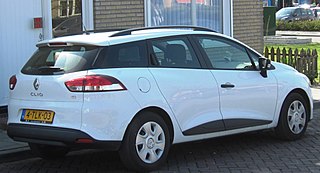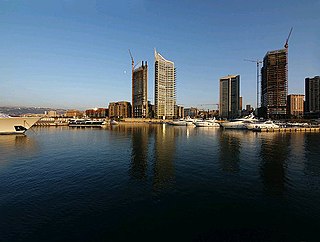Related Research Articles

Balmoral Castle is a large estate house in Royal Deeside, Aberdeenshire, Scotland, owned by Queen Elizabeth II. It is near the village of Crathie, 6.2 miles (10 km) west of Ballater and 6.8 miles (11 km) east of Braemar.

A will or testament is a legal document that expresses a person's (testator) wishes as to how their property (estate) is to be distributed after their death and as to which person (executor) is to manage the property until its final distribution. For the distribution (devolution) of property not determined by a will, see inheritance and intestacy.

Hoffman Estates is a village in Illinois, United States. The village is located primarily in Cook County, with a small section in Kane County. It is a suburb of Chicago. As of the 2010 census, the population was 51,895, and as of 2019 the estimated population was 50,932.

On June 20, 1789, the members of the French Third Estate took the Tennis Court Oath, vowing "not to separate and to reassemble wherever circumstances require, until the Constitution of the kingdom is established". It was a pivotal event in the French Revolution. The Estates-General had been called to address the country's fiscal and agricultural crisis, but they had become bogged down in issues of representation immediately after convening in May 1789, particularly whether they would vote by order or by head.

A station wagon, also called an estate car, estate or wagon, is a car body style which has a two-box design, a large cargo area and a rear tailgate that is hinged to open for access to the cargo area. The body style is similar to a hatchback car, but station wagons are longer and are more likely to have the roof-line extended to the rear of the vehicle body to provide ample space for luggage and small cargo.

The estates of the realm, or three estates, were the broad orders of social hierarchy used in Christendom from the medieval period to early modern Europe. Different systems for dividing society members into estates developed and evolved over time.
A real estate investment trust (REIT) is a company that owns, and in most cases operates, income-producing real estate. REITs own many types of commercial real estate, ranging from office and apartment buildings to warehouses, hospitals, shopping centers, hotels and commercial forests. Some REITs engage in financing real estate. Most countries laws on REITs entitle a real estate company to pay less in corporation tax and capital gains tax. REITs have been criticised as enabling speculation on housing, and reducing housing affordability, without increasing finance for building.
A real estate broker, real estate agent or realtor is a person who represents sellers or buyers of real estate or real property. While a broker may work independently, an agent usually works under a licensed broker to represent clients. Brokers and agents are licensed by the state to negotiate sales agreements and manage the documentation required for closing real estate transactions. In North America, some brokers and agents are members of the National Association of Realtors (NAR), the largest trade association for the industry. NAR members are obligated by a code of ethics that go above and beyond state legal requirements to work in the best interest of the client. Buyers and sellers are generally advised to consult a licensed real estate professional for a written definition of an individual state's laws of agency, and many states require written disclosures to be signed by all parties outlining the duties and obligations.

The Crown Estate is a collection of lands and holdings in the territories of England, Wales and Northern Ireland within the United Kingdom belonging to the British monarch as a corporation sole, making it "the sovereign's public estate", which is neither government property nor part of the monarch's private estate. The sovereign is not involved with the management or administration of the estate, and exercises only very limited control of its affairs. Instead, the estate's extensive portfolio is overseen by a semi-independent, incorporated public body headed by the Crown Estate Commissioners, who exercise "the powers of ownership" of the estate, although they are not "owners in their own right". The revenues from these hereditary possessions have been placed by the monarch at the disposition of Her Majesty's Government in exchange for relief from the responsibility to fund the Civil Government. These revenues thus proceed directly to Her Majesty's Treasury, for the benefit of the British nation. The Crown Estate is formally accountable to the Parliament of the United Kingdom, where it is legally mandated to make an annual report to the sovereign, a copy of which is forwarded to the House of Commons.
An estate, in common law, is the net worth of a person at any point in time alive or dead. It is the sum of a person's assets – legal rights, interests and entitlements to property of any kind – less all liabilities at that time. The issue is of special legal significance on a question of bankruptcy and death of the person.
Historically, an estate comprises the houses, outbuildings, supporting farmland, and woods that surround the gardens and grounds of a very large property, such as a country house or mansion. It is the modern term for a manor, but lacks a manor's now-abolished jurisdictional authority. It is an "estate" because the profits from its produce and rents are sufficient to support the household in the house at its center, formerly known as the manor house. Thus, "the estate" may refer to all other cottages and villages in the same ownership as the mansion itself, covering more than one former manor. Examples of such great estates are Woburn Abbey in Bedfordshire, England, and Blenheim Palace, in Oxfordshire, England, built to replace the former manor house of Woodstock.

The Estates General of 1789 was a general assembly representing the French estates of the realm: the clergy, the nobility, and the commoners. It was the last of the Estates General of the Kingdom of France. Summoned by King Louis XVI, the Estates General of 1789 ended when the Third Estate became a National Assembly and, against the wishes of the King, invited the other two estates to join. This signaled the outbreak of the French Revolution.

Probate is the judicial process whereby a will is "proved" in a court of law and accepted as a valid public document that is the true last testament of the deceased, or whereby the estate is settled according to the laws of intestacy in the state of residence [or real property] of the deceased at time of death in the absence of a legal will.

Shek Kip Mei Estate is the first public housing estate in Hong Kong. It is located in Sham Shui Po and is under the management of the Hong Kong Housing Authority. The estate was constructed as a result of a fire in Shek Kip Mei in 1953, to settle the families of inhabitants in the squats over the hill who lost their homes in one night.
An inheritance tax is a tax paid by a person who inherits money or property of a person who has died, whereas an estate tax is a levy on the estate of a person who has died.

Real estate development, or property development, is a business process, encompassing activities that range from the renovation and re-lease of existing buildings to the purchase of raw land and the sale of developed land or parcels to others. Real estate developers are the people and companies who coordinate all of these activities, converting ideas from paper to real property. Real estate development is different from construction, although many developers also manage the construction process.
Real estate is property consisting of land and the buildings on it, along with its natural resources such as crops, minerals or water; immovable property of this nature; an interest vested in this (also) an item of real property, buildings or housing in general.

In English common law, real property, real estate, realty, or immovable property is land which is the property of some person and all structures integrated with or affixed to the land, including crops, buildings, machinery, wells, dams, ponds, mines, canals, and roads, among other things. The term is historic, arising from the now-discontinued form of action, which distinguished between real property disputes and personal property disputes. Personal property was, and continues to be, all property that is not real property.
References
- Thirumavalavan, Thol. Talisman: Extreme Emotions of Dalit Liberation. p. 174.
| This Thanjavur district location article is a stub. You can help Wikipedia by expanding it. |